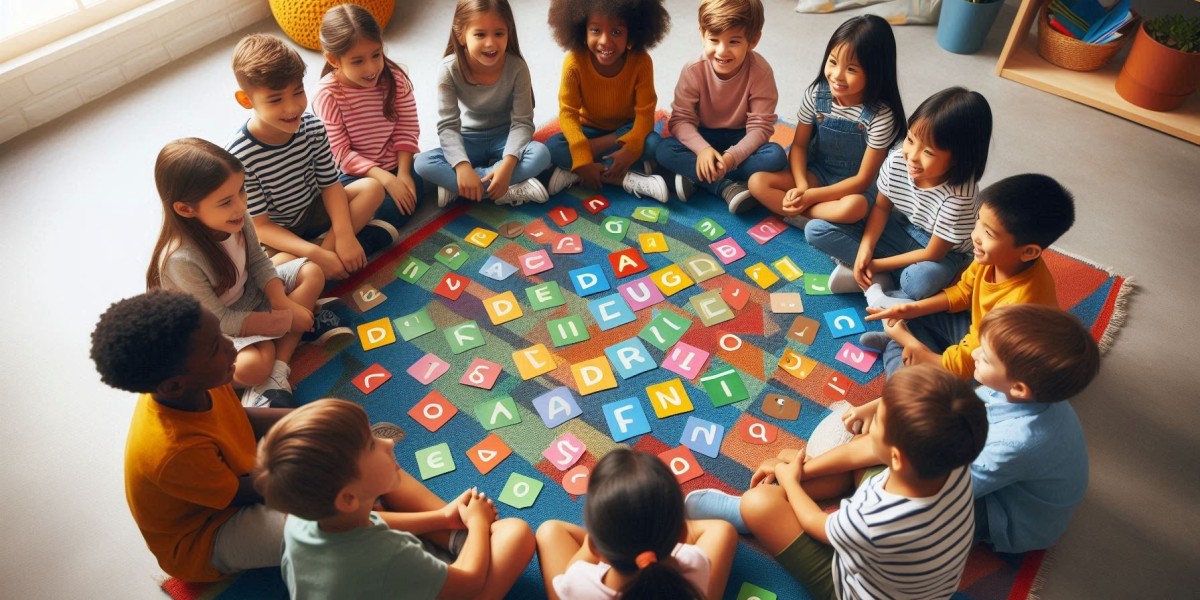Word Spelling Games: Engaging Tools for Literacy Development
Spelling is a cornerstone of literacy, forming the bridge between reading fluency and effective communication. While traditional methods like rote memorization have their place, word spelling games offer a dynamic alternative that combines learning with fun. This article explores the best spelling games for all ages, their benefits, and how to integrate them into educational settings or home learning.
Why Word Spelling Games Matter
Word spelling games transform learning from a chore into an engaging activity. Here’s why they’re effective:
Boost Retention: Games reinforce memory through repetition and interactive engagement.
Encourage Critical Thinking: Players strategize to spell words correctly under constraints like time or competition.
Build Confidence: Success in games motivates learners to tackle more challenging words.
Adapt to All Ages: From preschoolers to adults, games can be tailored to skill levels.
Top Word Spelling Games for Kids
1. Scrabble Junior
Age Group: 5–10 years
How It Works: A simplified version of classic Scrabble, with pre-printed words on the board. Kids match letter tiles to spell words.
Skills Developed: Letter recognition, vocabulary, and teamwork.
2. Bananagrams
Age Group: 7+
How It Works: Players race to build crossword grids using letter tiles. Fast-paced and portable!
Skills Developed: Quick thinking, spelling, and spatial reasoning.
3. Word Search Puzzles
Age Group: 6+
How It Works: Find hidden words in a grid of letters. Printable or digital versions available.
Skills Developed: Pattern recognition and focus.
4. Spelling Bingo
Age Group: 4–8 years
How It Works: Customize bingo cards with age-appropriate words. Call out definitions or pronunciations, and players mark matches.
Skills Developed: Listening skills and word association.
5. Hangman
Age Group: 8+
How It Works: Guess letters to complete a word before the “hangman” is drawn.
Skills Developed: Vocabulary and deductive reasoning.
Online Spelling Games & Apps
Technology has revolutionized spelling practice with interactive platforms:
1. VocabularySpellingCity
Features: Customizable spelling lists, games like Word Unscramble and Speedy Speller.
Best For: Teachers creating tailored assignments.
2. ABCmouse
Features: Games like Letter Blocks and Word Farm for ages 2–8.
Best For: Early learners mastering phonics.
3. Squeebles Spelling Test
Features: Kids take fun spelling quizzes and earn rewards.
Best For: Motivating reluctant spellers.
4. Puzzlemaker (Discovery Education)
Features: Create custom word searches and crossword puzzles.
Best For: Classroom activities or homework.
5. Spelling Stage
Features: Competitions and quizzes aligned with school curricula.
Best For: Students preparing for spelling bees.
DIY Spelling Games for Home or Classroom
No budget? No problem! Try these easy, low-cost activities:
1. Flashcard Relay
How to Play: Place flashcards around a room. Kids run to a card, spell the word aloud, and race back.
Materials: Index cards, markers.
2. Spelling Hopscotch
How to Play: Write letters in hopscotch squares. Kids hop to letters to spell words.
Materials: Chalk or tape.
3. Word Jenga
How to Play: Write words on Jenga blocks. Players spell the word before pulling the block.
Materials: Jenga set, marker.
4. Memory Match
How to Play: Create pairs of cards with words and corresponding images.
Materials: Cardstock, printed images.
5. Spelling Ball Toss
How to Play: Toss a ball while calling out letters to build a word collaboratively.
Materials: Soft ball.
Choosing the Right Spelling Game
Consider these factors when selecting a game:
Age Appropriateness: Simpler games for younger kids (e.g., Bingo), complex ones for older learners (e.g., Bananagrams).
Learning Goals: Focus on phonics, vocabulary, or spelling rules.
Group Size: Solo apps vs. group games like Scrabble.
Tech Preferences: Digital apps for screen time or hands-on board games.
FAQs About Word Spelling Games
1. Are spelling games effective for dyslexic students?
Yes! Multi-sensory games (e.g., using tactile letters) can improve retention. Apps like Nessy are specifically designed for dyslexia.
2. How long should spelling game sessions last?
Aim for 15–20 minutes to maintain engagement without burnout.
3. Can spelling games replace traditional learning?
They’re best used as supplements to reinforce skills taught through direct instruction.
4. What are free resources for spelling games?
Websites like Education.com and PBS Kids offer free printable and online games.
5. How do I make spelling games competitive?
Use timers, scoreboards, or rewards (e.g., extra playtime) to fuel friendly competition.
Conclusion
Word games are powerful tools that make learning interactive and enjoyable. Whether through classic board games like Scrabble Junior, apps like ABCmouse, or DIY activities like Spelling Hopscotch, these games cater to diverse learning styles and needs. By integrating them into daily routines, parents and educators can foster a love for language while building essential literacy skills.
Also Check Out More Game : word games









